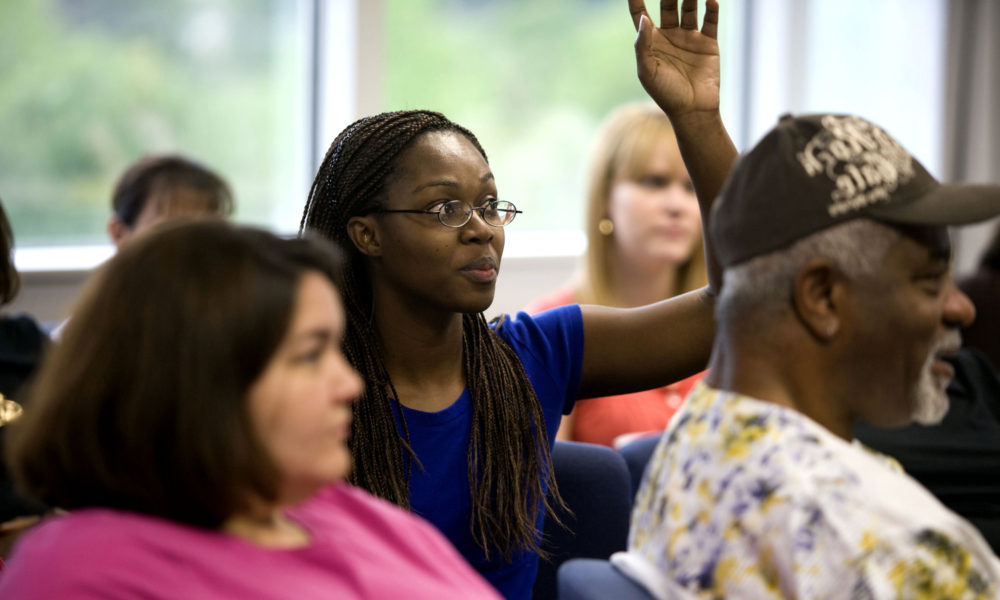The sad reality in this country is that political leaders are more likely to consider the viewpoints of the wealthy and affluent when deciding policy, and this occurs even when the science is clear that disenfranchised communities are facing the brunt of the harms. Residents of impacted communities – most often communities of color, Indigenous communities, and low-income communities – continue to be under-represented at the policymaking table on the very policies that affect them most.
But why is that the case? What prevents the members of impacted communities from playing a more prominent role in the policymaking process? Why are politicians from America, a nation that prides itself on liberty and justice for all, so unable to listen to and tap the vast wealth of knowledge and lived experiences that are found in marginalized communities and respond accordingly?
The answer is that, in many cases, dismissing the needs, wants, and aspirations of underserved communities is what our system is founded on and has evolved to do – it is our de facto norm. And the effect of this normal system is the polluting and poisoning of the land, water, and air for millions of marginalized individuals across the nation.
At UCS, we’ve analyzed this phenomenon in two recent reports, on how biased and unrepresentative state legislatures and how the Trump administration’s anti-science actions are further exacerbating existing health inequities, making the most vulnerable individuals in our country sicker and less able to enact change. And while no one individual or entity can shoulder the blame for this system, there is no doubt that when science-based and democratic policies are sidelined, failed to be enforced, or dismantled, the consequences will fall disproportionately on disenfranchised communities.
Political officials are failing underserved communities…
The people that face some of the worse impacts from a departure of science-based policies are marginalized communities. Communities of color, Indigenous communities, and low-income communities are overburdened with cumulative stressors such as air and water pollution and a lack of worker safety protections that can result in substantial harm. So, when policymakers ignore the voices of underserved community members and sideline the science, it can further perpetuate the cycle of environmental racism and discrimination that burdens communities with increased public health and environmental hazards.
From sea to shining sea, the Trump administration is consistently shoving the science in a drawer and worsening the burdens on communities by refusing to ban a pesticide that harms the brains of children, by failing to regulate the toxic gunk leftover by the operation of coal-fired power plants, and by performing actions that raise the risk of poultry workers being injured while on the job. Federal programs backed by science that are designed to aid the underserved, like SNAP, Medicaid, and Title X clinics, have been undermined by the current administration. And the data and research that could help us better understand the struggles faced by impacted communities – such as the adverse health effects from large farms emissions, mountaintop removal coal mining, and an industrial chemical found in our drinking water – has been hidden, hampered or halted by the Trump administration. How are we to make the changes we need to achieve justice for communities without this information?
…And they are refusing to listen to them
To add insult to injury, the voices of impacted community members are not being heard by the Trump administration and, in some cases, marginalized communities are being literally shut out of the policymaking process. For example, the Obama administration established via executive order a group of stakeholders that would plan for the effects of climate change on the Bering Sea in Alaska. Alaskan Native tribal groups had a seat at the decision-making table and their traditional knowledge was explicitly valued during the process. However, the Trump administration rescinded this executive order, without even as much as contacting the Alaskan Native groups, the people on whose participation it was based on and whose welfare it was designed to protect. And when you consider that the US government has a long and troubled history of failing to listen to and honor agreements with Indigenous peoples, it is particularly problematic that the Trump administration has stripped Alaskan Natives from their ability to enact change for their communities.
The barrage of barriers that prevent communities from enacting change
My colleague Michael Latner recently examined the relationship between worsening health outcomes and the forms of voter suppression that prevents marginalized communities from having their votes count, such as restricting voter eligibility, ballot access, and gerrymandering. For instance, the ability of Indigenous communities in North Dakota to vote was restricted because of a selective voter ID eligibility law.
Communities not only experience these injustices, but there are other barriers that prevent communities from knowing about what is harming them and being able to do something about it. To name a few, air pollution monitors are often lacking in communities with environmental justice concerns; additional resources and actions are more easily provided to wealthy communities and corporations; federal scientists have been blocked from carrying out data collection on communities; and cumulative impacts from pollution and other stressors are not being considered in the decisionmaking process. The deck is stacked against communities.
It doesn’t have to be this way
But we don’t have to accept this situation as normal, impacted community members and their allies are fighting back against this situation. And there are actions that we all can take to build a healthier democracy. And scientists and technical experts that are already working with communities can take one step further and advocate with them. Because underserved communities should receive the health, safety, and environmental protections that they so rightly need. And communities deserve to have their voices heard, their concerns listened to, and the ability to participate in our American democracy.

